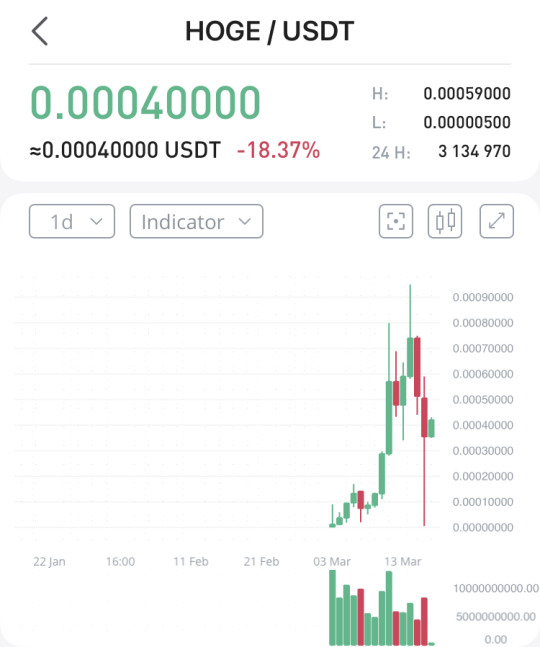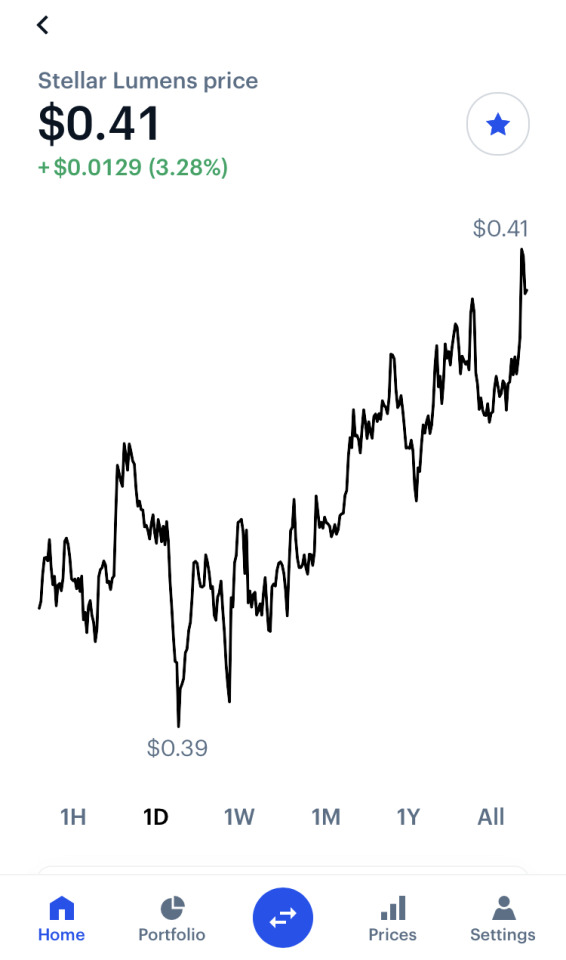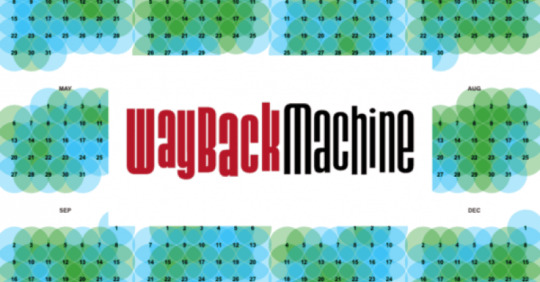#can cryptocurrency be solarpunk
Text
youtube
If technology wasn’t such a central aspect of solarpunk, we’d all just be hippies redux. Yet not all tech, right? Because solarpunk is also about living the good life while building a just, inclusive, and sustainable society. So, what is solarpunk’s attitude toward and relationship with tech? How do solarpunks decide what’s worth it and what’s beyond the pale? And what’s all this about appropriate technology?
#solarpunk#Solarpunk Presents Podcast#podcast#appropriate technology#solarpunk and technology#solarpunk's relationship to technology#high tech high life#social media#blockchain#bitcoin#can bitcoin be solarpunk#can the blockchain be solarpunk#how do solarpunks use technology#how should solarpunks think about technology#solarpunk technology#steampunk technology#cyberpunk technology#cryptocurrency#can cryptocurrency be solarpunk#science fiction genre#anti-capitalism#Youtube
9 notes
·
View notes
Text
Real innovation vs Silicon Valley nonsense

This is the LAST DAY to get my bestselling solarpunk utopian novel THE LOST CAUSE (2023) as a $2.99, DRM-free ebook!

If there was any area where we needed a lot of "innovation," it's in climate tech. We've already blown through numerous points-of-no-return for a habitable Earth, and the pace is accelerating.
Silicon Valley claims to be the epicenter of American innovation, but what passes for innovation in Silicon Valley is some combination of nonsense, climate-wrecking tech, and climate-wrecking nonsense tech. Forget Jeff Hammerbacher's lament about "the best minds of my generation thinking about how to make people click ads." Today's best-paid, best-trained technologists are enlisted to making boobytrapped IoT gadgets:
https://pluralistic.net/2024/05/24/record-scratch/#autoenshittification
Planet-destroying cryptocurrency scams:
https://pluralistic.net/2024/02/15/your-new-first-name/#that-dagger-tho
NFT frauds:
https://pluralistic.net/2022/02/06/crypto-copyright-%f0%9f%a4%a1%f0%9f%92%a9/
Or planet-destroying AI frauds:
https://pluralistic.net/2024/01/29/pay-no-attention/#to-the-little-man-behind-the-curtain
If that was the best "innovation" the human race had to offer, we'd be fucking doomed.
But – as Ryan Cooper writes for The American Prospect – there's a far more dynamic, consequential, useful and exciting innovation revolution underway, thanks to muscular public spending on climate tech:
https://prospect.org/environment/2024-05-30-green-energy-revolution-real-innovation/
The green energy revolution – funded by the Bipartisan Infrastructure Act, the Inflation Reduction Act, the CHIPS Act and the Science Act – is accomplishing amazing feats, which are barely registering amid the clamor of AI nonsense and other hype. I did an interview a while ago about my climate novel The Lost Cause and the interviewer wanted to know what role AI would play in resolving the climate emergency. I was momentarily speechless, then I said, "Well, I guess maybe all the energy used to train and operate models could make it much worse? What role do you think it could play?" The interviewer had no answer.
Here's brief tour of the revolution:
2023 saw 32GW of new solar energy come online in the USA (up 50% from 2022);
Wind increased from 118GW to 141GW;
Grid-scale batteries doubled in 2023 and will double again in 2024;
EV sales increased from 20,000 to 90,000/month.
https://www.whitehouse.gov/briefing-room/blog/2023/12/19/building-a-thriving-clean-energy-economy-in-2023-and-beyond/
The cost of clean energy is plummeting, and that's triggering other areas of innovation, like using "hot rocks" to replace fossil fuel heat (25% of overall US energy consumption):
https://rondo.com/products
Increasing our access to cheap, clean energy will require a lot of materials, and material production is very carbon intensive. Luckily, the existing supply of cheap, clean energy is fueling "green steel" production experiments:
https://www.wdam.com/2024/03/25/americas-1st-green-steel-plant-coming-perry-county-1b-federal-investment/
Cheap, clean energy also makes it possible to recover valuable minerals from aluminum production tailings, a process that doubles as site-remediation:
https://interestingengineering.com/innovation/toxic-red-mud-co2-free-iron
And while all this electrification is going to require grid upgrades, there's lots we can do with our existing grid, like power-line automation that increases capacity by 40%:
https://www.npr.org/2023/08/13/1187620367/power-grid-enhancing-technologies-climate-change
It's also going to require a lot of storage, which is why it's so exciting that we're figuring out how to turn decommissioned mines into giant batteries. During the day, excess renewable energy is channeled into raising rock-laden platforms to the top of the mine-shafts, and at night, these unspool, releasing energy that's fed into the high-availability power-lines that are already present at every mine-site:
https://www.euronews.com/green/2024/02/06/this-disused-mine-in-finland-is-being-turned-into-a-gravity-battery-to-store-renewable-ene
Why are we paying so much attention to Silicon Valley pump-and-dumps and ignoring all this incredible, potentially planet-saving, real innovation? Cooper cites a plausible explanation from the Apperceptive newsletter:
https://buttondown.email/apperceptive/archive/destructive-investing-and-the-siren-song-of/
Silicon Valley is the land of low-capital, low-labor growth. Software development requires fewer people than infrastructure and hard goods manufacturing, both to get started and to run as an ongoing operation. Silicon Valley is the place where you get rich without creating jobs. It's run by investors who hate the idea of paying people. That's why AI is so exciting for Silicon Valley types: it lets them fantasize about making humans obsolete. A company without employees is a company without labor issues, without messy co-determination fights, without any moral consideration for others. It's the natural progression for an industry that started by misclassifying the workers in its buildings as "contractors," and then graduated to pretending that millions of workers were actually "independent small businesses."
It's also the natural next step for an industry that hates workers so much that it will pretend that their work is being done by robots, and then outsource the labor itself to distant Indian call-centers (no wonder Indian techies joke that "AI" stands for "absent Indians"):
https://pluralistic.net/2024/05/17/fake-it-until-you-dont-make-it/#twenty-one-seconds
Contrast this with climate tech: this is a profoundly physical kind of technology. It is labor intensive. It is skilled. The workers who perform it have power, both because they are so far from their employers' direct oversight and because these fed-funded sectors are more likely to be unionized than Silicon Valley shops. Moreover, climate tech is capital intensive. All of those workers are out there moving stuff around: solar panels, wires, batteries.
Climate tech is infrastructural. As Deb Chachra writes in her must-read 2023 book How Infrastructure Works, infrastructure is a gift we give to our descendants. Infrastructure projects rarely pay for themselves during the lives of the people who decide to build them:
https://pluralistic.net/2023/10/17/care-work/#charismatic-megaprojects
Climate tech also produces gigantic, diffused, uncapturable benefits. The "social cost of carbon" is a measure that seeks to capture how much we all pay as polluters despoil our shared world. It includes the direct health impacts of burning fossil fuels, and the indirect costs of wildfires and extreme weather events. The "social savings" of climate tech are massive:
https://arstechnica.com/science/2024/05/climate-and-health-benefits-of-wind-and-solar-dwarf-all-subsidies/
For every MWh of renewable power produced, we save $100 in social carbon costs. That's $100 worth of people not sickening and dying from pollution, $100 worth of homes and habitats not burning down or disappearing under floodwaters. All told, US renewables have delivered $250,000,000,000 (one quarter of one trillion dollars) in social carbon savings over the past four years:
https://arstechnica.com/science/2024/05/climate-and-health-benefits-of-wind-and-solar-dwarf-all-subsidies/
In other words, climate tech is unselfish tech. It's a gift to the future and to the broad public. It shares its spoils with workers. It requires public action. By contrast, Silicon Valley is greedy tech that is relentlessly focused on the shortest-term returns that can be extracted with the least share going to labor. It also requires massive public investment, but it also totally committed to giving as little back to the public as is possible.
No wonder America's richest and most powerful people are lining up to endorse and fund Trump:
https://prospect.org/blogs-and-newsletters/tap/2024-05-30-democracy-deshmocracy-mega-financiers-flocking-to-trump/
Silicon Valley epitomizes Stafford Beer's motto that "the purpose of a system is what it does." If Silicon Valley produces nothing but planet-wrecking nonsense, grifty scams, and planet-wrecking, nonsensical scams, then these are all features of the tech sector, not bugs.
As Anil Dash writes:
Driving change requires us to make the machine want something else. If the purpose of a system is what it does, and we don’t like what it does, then we have to change the system.
https://www.anildash.com/2024/05/29/systems-the-purpose-of-a-system/
To give climate tech the attention, excitement, and political will it deserves, we need to recalibrate our understanding of the world. We need to have object permanence. We need to remember just how few people were actually using cryptocurrency during the bubble and apply that understanding to AI hype. Only 2% of Britons surveyed in a recent study use AI tools:
https://www.bbc.com/news/articles/c511x4g7x7jo
If we want our tech companies to do good, we have to understand that their ground state is to create planet-wrecking nonsense, grifty scams, and planet-wrecking, nonsensical scams. We need to make these companies small enough to fail, small enough to jail, and small enough to care:
https://pluralistic.net/2024/04/04/teach-me-how-to-shruggie/#kagi
We need to hold companies responsible, and we need to change the microeconomics of the board room, to make it easier for tech workers who want to do good to shout down the scammers, nonsense-peddlers and grifters:
https://pluralistic.net/2023/07/28/microincentives-and-enshittification/
Yesterday, a federal judge ruled that the FTC could hold Amazon executives personally liable for the decision to trick people into signing up for Prime, and for making the unsubscribe-from-Prime process into a Kafka-as-a-service nightmare:
https://arstechnica.com/tech-policy/2024/05/amazon-execs-may-be-personally-liable-for-tricking-users-into-prime-sign-ups/
Imagine how powerful a precedent this could set. The Amazon employees who vociferously objected to their bosses' decision to make Prime as confusing as possible could have raised the objection that doing this could end up personally costing those bosses millions of dollars in fines:
https://pluralistic.net/2023/09/03/big-tech-cant-stop-telling-on-itself/
We need to make climate tech, not Big Tech, the center of our scrutiny and will. The climate emergency is so terrifying as to be nearly unponderable. Science fiction writers are increasingly being called upon to try to frame this incomprehensible risk in human terms. SF writer (and biologist) Peter Watts's conversation with evolutionary biologist Dan Brooks is an eye-opener:
https://thereader.mitpress.mit.edu/the-collapse-is-coming-will-humanity-adapt/
They draw a distinction between "sustainability" meaning "what kind of technological fixes can we come up with that will allow us to continue to do business as usual without paying a penalty for it?" and sustainability meaning, "what changes in behavior will allow us to save ourselves with the technology that is possible?"
Writing about the Watts/Brooks dialog for Naked Capitalism, Yves Smith invokes William Gibson's The Peripheral:
With everything stumbling deeper into a ditch of shit, history itself become a slaughterhouse, science had started popping. Not all at once, no one big heroic thing, but there were cleaner, cheaper energy sources, more effective ways to get carbon out of the air, new drugs that did what antibiotics had done before…. Ways to print food that required much less in the way of actual food to begin with. So everything, however deeply fucked in general, was lit increasingly by the new, by things that made people blink and sit up, but then the rest of it would just go on, deeper into the ditch. A progress accompanied by constant violence, he said, by sufferings unimaginable.
https://www.nakedcapitalism.com/2024/05/preparing-for-collapse-why-the-focus-on-climate-energy-sustainability-is-destructive.html
Gibson doesn't think this is likely, mind, and even if it's attainable, it will come amidst "unimaginable suffering."
But the universe of possible technologies is quite large. As Chachra points out in How Infrastructure Works, we could give every person on Earth a Canadian's energy budget (like an American's, but colder), by capturing a mere 0.4% of the solar radiation that reaches the Earth's surface every day. Doing this will require heroic amounts of material and labor, especially if we're going to do it without destroying the planet through material extraction and manufacturing.
These are the questions that we should be concerning ourselves with: what behavioral changes will allow us to realize cheap, abundant, green energy? What "innovations" will our society need to focus on the things we need, rather than the scams and nonsense that creates Silicon Valley fortunes?
How can we use planning, and solidarity, and codetermination to usher in the kind of tech that makes it possible for us to get through the climate bottleneck with as little death and destruction as possible? How can we use enforcement, discernment, and labor rights to thwart the enshittificatory impulses of Silicon Valley's biggest assholes?

If you'd like an essay-formatted version of this post to read or share, here's a link to it on pluralistic.net, my surveillance-free, ad-free, tracker-free blog:
https://pluralistic.net/2024/05/30/posiwid/#social-cost-of-carbon
#pluralistic#ai#hype#anil dash#stafford beer#amazon#prime#scams#dark patterns#POSIWID#the purpose of a system is what it does#climate#economics#innovation#renewables#social cost of carbon#green energy#solar#wind#ryan cooper#peter watts#the jackpot#ai hype#chips act#ira#inflation reduction act#infrastructure#deb chachra
155 notes
·
View notes
Text
Altcoin analysis: $Hoge! What is it, why it's amazing, & how to buy!

YOUTUBE EPISODE

Today I'm discussing an upcoming, extremely promising altcoin: Hoge ($HOGE)! This token has been steady rising from the Dogecoin craze and it has legitimate tokenomics along with an amazing community! So what is it, why is it so cool, and how do I get some?
First, off $HOGE has risen out from the Dogecoin craze, another super popular meme coin with the Shiba Inu as its mascot that has recently been trending thanks to the recent GameStop mooning, although it has been around since 2013. I myself have been holding my Dogecoin despite the recent pump and dumps, simply because I like the coin!


Price of Doge via TradingView
Dogecoin is a decentralized memecoin and it is inflationary, meaning an infinite amount of Dogecoin can be mined. So because of such, it recently had a short moment with an all-time high of $0.08, while steady remaining in consolidation sitting mostly at $0.05 a coin. For the most part, Dogecoin is supposed to be fun and lighthearted. Many of the folks in the community have used their profits to donate to dog rescues and other animal shelters. We do it for the doggos!
Hoge, on the other hand, has a bulldog mascot, also decentralized, and deflationary, meaning there is a limited supply capped at 1000 billion Hogecoins and steady decreasing! As of right now there is only 436 billion circulating and burning at every transaction made! Every transaction means that 1% of its supply gets burned, unlike Doge where it's practically unlimited in supply.
With that said, the benefit of Hoge being deflationary is that as it dwindles in supply, its value will continue to increase. Not only does 1% of the supply get burned, but at the same time, another 1% gets recirculated to those who continue to hold their Hoge! Holders gain from every transaction! This is what truly sets it apart from Dogecoin in its tokenomics. As of right now, it's sitting at a fraction of a penny meaning that as it continues to rise in value, one can easily multiply their initial investment by 50-100x+

Price of Hoge.Finance via WhiteBit
The Hoge community itself is also full of wonderful, wholesome people who are in it for the long term. This is not a get rich quick deal. This is a community that will cultivate and recirculate wealth amongst itself, it's as solarpunk as it gets! There is nothing but gains to be made by investing into Hoge. FOR THE DOGGOS! So how to buy?
So the easiest way to buy, in my opinion, is via this particular method although you can find other ways to buy directly on the Hoge.Finance main website as well. However, the main method of buying Ethereum ($ETH) and trading it to buy Hoge can be very costly in gas fees! Therefore, I personally prefer this method since the fees are much much less costly. If you are a newbie to trading crypto, or trading in general, feel free to message me for help!
HOW TO BUY HOGECOIN
1. Buy XLM via Coinbase

Stellar Lumens ($XLM)
2. Send XLM balance to WhiteBit (cryptocurrency exchange) *BE AWARE OF THE MEMO NOTES AND INCLUDE IT IN THE TRANSFER TO AVOID LOSING YOUR FUNDS*

3. Deposit XLM and move from your main WhiteBit balance to trade balance.
4. Trade XLM for USDT (meaning place a buy for USDT with your XLM balance - small fee of 0.01%)
5. Then trade USDT for HOGE (small fee of 0.01%)
6. Move HOGE from trading balance to main balance
7. Send your HOGE balance to your Coinbase Wallet (there will be a small fee to transfer)
8. HODL and gain 1% redistribution for holding in your wallet!
And there you have it! No need to be intimidated by price dips. With every dip, me and so many others intend to buy more HOGE! 🐶 As always, do your own research and analysis! Crypto is a volatile, high risk investment. DO NOT INVEST MORE THAN YOU ARE WILLING TO LOSE. Happy earning!
IMPORTANT LINKS
Hoge.Finance - main website with information on how to buy, swag, other info, etc.
DONATE TO THE DEVELOPERS!
r/hoge
r/hogefinance
Hoge.Finance Audit report
Get Coinbase
Get WhiteBit
Wanna support me? XLM address (to get more Hoge of course!) - GDQP2KPQGKIHYJGXNUIYOMHARUARCA7DJT5FO2FFOOKY3B2WSQHG4W37
#all#blog#hogecoin#hoge.finance#dogecoin#Cryptocurrency#crypto trading#make money online#finances#stonks
40 notes
·
View notes
Text
We Need To Talk About NANO
Despite my username, I don’t normally do a whole lot of posts that unite my solarpunk beliefs and agorist praxis. Personally, I'm just as big on mesh networks and sustainability as I am on green p2p trade networks. However, this post will do both, because both communities need to be talking about NANO.

But why should an anti-capitalist solarpunk care about a cryptocurrency, and how energy efficient is it, really?
To answer that, we need to first look at where Bitcoin failed, and where NANO is fixing the problem.
As many people have probably heard by now, Bitcoin is excessively energy-inefficient and is not nearly as decentralized as it claims. It had potential, for sure. With its original lack of central authority, low transaction fees mostly utilized to pay its miners, and fast transaction speed combined with relative anonymity in purchasing, Bitcoin could have been the cryptocurrency to demolish the central banking system once and for all, and transform currency and our entire market structure into a free community-owned-and-led barter system.
But it didn’t.
In fact, where fees were originally less than a cent, even a $40 transaction can now have the equivalent of a $4 fee attached. Where there was a lack of central authority and general equality, there are now bitcoin whales and banks. Where there were near-instant transaction speeds, there are now sometimes days of waiting for trade confirmation.
For explanation of what a blockchain is and what miners do, a video:
youtube
For my deaf readers, the video does have closed captions.
And while all this is happening, Bitcoin is so energy-inefficient that it 950 KWH (kilowatt-hours) per transaction. To most people, that’s just a number. So for comparison, the average American household consumes 867 KWH per month.
Enter NANO.
NANO does not have the same problem of centralization as Bitcoin does, or even a regular blockchain-based cryptocurrency, because NANO uses a system called the block-lattice. With the block-lattice, every person has their own blockchain. In simple terms, think of blockchain like a book that, whenever you buy something, gets passed around to other people, who all try to make sure your trade actually happened like you say it did, while you wait patiently for them all to come to a consensus, and then pay them a few bucks when they’re all done.
NANO doesn’t need the consensus or the fees, because NANO just gives you the book. It’s very similar, in that respect, to mutual credit - a term the left-libertarians may recognize. In fact, it’s extremely similar, because it practically only exists between the sender and the receiver.
(There is an actual mutual credit cryptocurrency, which I will do a post about later.)
So how do they avoid someone lying about how much NANO they have? Like regular blockchain money, NANO does have a puzzle that the computer has to solve in order to validate. However, it’s been set up to be both energy-efficient for your computer and made extremely hard and time-consuming for someone to try to spam or hack the network. Here’s a video explaining it a little better, also with closed captions.
youtube
So how energy-efficient is NANO, and why do I call it a green crypto? NANO, unlike bitcoin, only consumes 0.000032 KWH per transaction. You may need a comparison for that, as well. An LED light-bulb takes an hour to consume 0.005 KWH. Essentially, you would need to be making about 150 NANO transactions an hour to consume the same energy as an LED.
And because all the coins that are in NANO are still there, and will not be added to, it will never get less energy-efficient.
And right now, that makes NANO over 8,467,023 times more efficient than Bitcoin, which surprisingly is still more energy efficient than the Federal Reserve.
The whole network is so energy-efficient that it can work off one wind turbine, and the NANO community is working to buy a small 14 square kilometer forest so that they have a negative carbon footprint rather than just a neutral one.
It's not perfect, sure, but it's great news in working towards a sustainable future.
3 notes
·
View notes
Photo






Wind energy used to mine cryptocurrency to fund climate research
HARVEST is a work of critical engineering and computational climate art. It uses wind-energy to mine cryptocurrency, the earnings of which are used as a source of funding for climate-change research.
Taking the form of a 2m wind turbine with environmental sensors, weatherproof computer and 4G uplink, HARVEST ‘feeds’ from two primary symptoms of our changing climate: wind gusts and storms. It does this by transforming wind energy into the electricity required to meet the demanding task of mining cryptocurrency (here Zcash), a decentralised process where computers are financially rewarded for their work maintaining and verifying a public transaction ledger known as the blockchain. Rather than filling the digital wallet of the artist, all rewards earned by the HARVEST mining machine are paid out as donations to non-profit climate change research organisations such that they can better study this planetary-scale challenge.
Acting as a fully functional prototype beyond a media-art context, it is envisaged hundreds of such HARVEST nodes could be deployed in the windiest parts of the world, together generating large sums of supplementary funding for climate-change NGOs in a time where climate science itself is under siege from the fossil-fuelled interests of governments and corporations.
--
HARVEST was commissioned by the Konstmuseet i Skövde an exhibition of which was designed and launched on the 14th of September, 2017, running for two months in the museum.
The exhibition comprises a live feed directly from the miner, conveying data relevant to the mining process. This data was visualised by Christopher Pietsch and can be seen in the two projections in the exhibition. Chris has kindly provided a public version of his work on this project here.
Julian Oliver is a New Zealander, Critical Engineer and artist based in Berlin.
(via H A R V E S T)
Solarpunk As Fuck
Julian is also a friend of this blog, we’ll be interviewing him in text on our medium v.soon & hopefully in audio format in the near future.
If you have any questions about the project, code, Critical Engineering or his other work please post them as comments to this post!
#julian oliver#critical engineering#harvest#cryptocurrency#crypto mining#climate change#zcash#zcash mining#climate research
80 notes
·
View notes
Text
youtube
In Season 5 Episode 3 of Solarpunk Presents, Christina chats with transdisciplinary technologist Stephen Reid about relationship solarpunk and lunarpunk have to crypto and web3. If lunarpunk is what solarpunk gets up to in the shadows of a moonlit night, that suggests that lunarpunk is inherently more interested in privacy, security, and anonymity, especially from the watchful eye of the state. That would further mean that where solarpunk is interested in renewable energy, sustainability, appropriate technology, and social justice, lunarpunk is interested in the tools, like cryptography, cryptocurrencies, and web3, that safeguard our privacy and anonymity and potentially protect us from tyranny. Do we need lunarpunk’s fixation with using tech to protect our privacy to counterbalance solarpunk’s sunny optimism that everything will all be fine to break through to a better world? To learn more about Stephen, his philosophies, and his work, check out https://stephenreid.net/
#solarpunk#Solarpunk Presents Podcast#podcast#interview podcast#solarpunk podcast#lunarpunk#lunarpunk and solarpunk#web3 and solarpunk#cryptography and solarpunk#cryptocurrency and solarpunk#privacy and lunarpunk#cryptography#how can web3 be solarpunk#how can cryptocurrency be solarpunk#what does privacy mean in solarpunk#how can solarpunks have internet privacy#in b4 the controversy#hot potato topic...#Youtube
12 notes
·
View notes
Text
A note on our most recent podcast...
Hey solarpunks, we’re truly sorry for having riled people up over our latest podcast interview. We realize now that we provided no context for the conversation and that is totally our bad. It wasn’t our intention to stir up controversy or to wave the flag for cryptocurrencies. We’re a team that values open discourse and inquiry, and we are already looking into having an episode with someone who can tell us (and listeners who may not be aware of the issues with crypto) about why they are anti-crypto and have a conversation around that. We’ve heard concerns from a number of you and we’re glad that some of you took the time to let us know. Going forward we’re going to be more mindful of contextualizing our conversations when necessary, and in response to feedback from our listeners.
Stay tuned to our blog for a post from our Patreon that Christina made back in March, which includes her thoughts specifically on the energy and resource costs of cryptocurrencies and might help give a bit of background to where she was coming from in the interview.
Meanwhile, please don’t forget that we’re imperfect human beings who are doing our best and that we’re volunteering a considerable amount of our own time and energy to create the podcast.
#solarpunk#solarpunk presents podcast#cryptocurrency#lunarpunk#inquiry#skepticism#curiosity#interviews
11 notes
·
View notes
Text
This day in history

Tomorrow (December 5), I'm at Flyleaf Books in Chapel Hill, NC, with my new solarpunk novel The Lost Cause, which 350.org's Bill McKibben called "The first great YIMBY novel: perceptive, scientifically sound, and extraordinarily hopeful."

#15yrsago Berlin hacker con will use RFID badges to simulate life in a totalitarian panopticon https://events.ccc.de/congress/2008/wiki/OpenBeacon_with_OpenAMD/
#15yrsago RIP, Forrest J Ackerman https://www.latimes.com/local/obituaries/la-me-ackerman6-2008dec06-story.html
#15yrsago Googling Security: book that opens your eyes to how much you disclose to Google https://memex.craphound.com/2008/12/05/googling-security-book-that-opens-your-eyes-to-how-much-you-disclose-to-google/
#10yrsago 75% of American silent feature films lost https://variety.com/2013/film/news/library-of-congress-only-14-of-u-s-silent-films-survive-1200915020/
#10yrsago NSA collecting unimaginable quantities of mobile phone location data for guilt-by-association data-mining https://www.washingtonpost.com/world/national-security/nsa-tracking-cellphone-locations-worldwide-snowden-documents-show/2013/12/04/5492873a-5cf2-11e3-bc56-c6ca94801fac_story.html
#10yrsago Democratic lawmakers share a squalorous house in DC https://edition.cnn.com/2013/12/04/politics/real-alpha-house/index.html
#10yrsago Rob Ford police document: allegations of heroin use and more https://torontolife.com/category/city/toronto-politics/2013/12/04/new-bombshells-from-police-documents-suggest-rob-ford-may-have-tried-heroin-been-blackmailed/
#10yrsago NYPD shoot at unarmed man, hit bystanders, charge man for making them shoot https://www.nytimes.com/2013/12/05/nyregion/unarmed-man-is-charged-with-wounding-bystanders-shot-by-police-near-times-square.html?smid=pl-share
#10yrsago Orange UK plumbs the depths of insulting, stupid marketing, finds a new low https://memex.craphound.com/2013/12/05/orange-uk-plumbs-the-depths-of-insulting-stupid-marketing-finds-a-new-low/
#5yrsago What it’s like to be a woman reporter on a cryptocurrency cruise where nearly all the other women are sex-workers https://web.archive.org/web/20181205144647/https://breakermag.com/trapped-at-sea-with-cryptos-nouveau-riche/
#5yrsago See you in court: amid protests, shameless Wisconsin GOP neuters the incoming governor in an all-night, lame-duck session https://www.csmonitor.com/USA/Politics/2018/1205/Wisconsin-GOP-pass-slew-of-measures-during-lameduck-session
#5yrsago British Member of Parliament publishes 250 pages of damning internal Facebook documents that had been sealed by a US court https://www.parliament.uk/globalassets/documents/commons-committees/culture-media-and-sport/Note-by-Chair-and-selected-documents-ordered-from-Six4Three.pdf
#5yrsago The longest-serving Congressman in US history proposes a four fixes for American democracy https://www.theatlantic.com/ideas/archive/2018/12/john-dingell-how-restore-faith-government/577222/
#5yrsago RIP, George HW Bush: a mass-murderer and war-criminal https://theintercept.com/2018/12/05/george-h-w-bush-1924-2018-american-war-criminal/
#5yrsago Trump cybersecurity advisor Rudy Giuliani has no idea how the internet works https://nymag.com/intelligencer/2018/12/rudy-giuliani-doesnt-seem-to-know-how-the-internet-works.html
#5yrsago Not just breaches: Never, ever use Quora https://waxy.org/2018/12/why-you-should-never-ever-use-quora/
#5yrsago Obamacare study: 25% decline in home delinquencies among newly insured poor people https://www.bloomberg.com/news/articles/2018-12-04/how-access-to-obamacare-cuts-late-housing-payments
#5yrsago Poland rejects the EU’s copyright censorship plans, calls it #ACTA2 https://www.eff.org/deeplinks/2018/11/poland-saved-europe-acta-can-they-save-us-acta2
#1yrago Monopoly's event-horizon: The true capitalist singularity https://pluralistic.net/2022/12/05/eldritch-physics/#wouldnt-start-from-here Banning surveillance ads and banning drm as good politics


It's EFF's Power Up Your Donation Week: this week, donations to the Electronic Frontier Foundation are matched 1:1, meaning your money goes twice as far. I've worked with EFF for 22 years now and I have always been - and remain - a major donor, because I've seen firsthand how effective, responsible and brilliant this organization is. Please join me in helping EFF continue its work!
7 notes
·
View notes
Text
How Do We Power Down?
ICYMI, here’s a post I put up on our Patreon back in March that, in anticipation of Season 5 (which we’re now partway into), considers the environmental problems posed by the use of cryptocurrencies and generative AI and the general problem of how do we power down our societies a bit without being overrun by societies that opt not to power down?
Christina here... I don’t know if any of you caught it, but Elizabeth Kolbert, who specializes in writing about climate change and our efforts (or lack thereof) to stop driving it, recently had another interesting article in the New Yorker. This article explored, to quote the title, the “obscene energy demands of AI,” or more specifically, of AI, like ChatGPT and Midjourney, that processes astronomical amounts of information every time it is used.
To take a moment to be totally self–centered about this, how interesting—and how timely! Ariel and I just discussed solarpunk’s use of and attitude toward AI, especially the image generating kind, when we recorded THE FIRST EPISODE OF SEASON 5—WOOT!—which you’ll have early access to toward the end of this month. But, for all that we found to consider about it, we didn’t touch on the enormous electricity consumption associated with AI image generation. Which now puts me, personally, far more solidly in the this is a bad idea camp, even if people are using AI to put POC into amazing imaginings of a super future. But Elizabeth Kolbert’s article—which you should definitely read!—gives me this chance to broach the subject, even if it is a few weeks before Season 5 begins, and explore it briefly further.
To give you a brief sneak peak: in our Season 5 opener, Ariel and I talk about solarpunk’s relationship with tech. Because solarpunk is both highly tech–centric and highly tech–skeptical, which is kind of a cool combination. Solarpunks are always asking should we or shouldn’t we use that tech and wouldn’t the world be a better place if we weren’t all always asking that question! Meawhile, the should we or shouldn’t we of AI and cryptocurrencies are already points of, if not contention, then at least deep disagreement between solarpunks. Again, I’m pretty much in the NOPE camp, all the more so now after reading Elizabeth Kolbert’s article.
As Elizabeth Kolbert explains, along with cryptocurrencies, AI like ChatGPT and Midjourney are shocking electricity hogs and... which I hadn’t previously realized... prolific producers of e–waste (because there are so many servers involved and they need to be replaced as they age). As she points out in the article, a single Bitcoin transaction produces the equivalent amount of e–waste as an iPhone. If that’s the case, there’s no way that all but a tiny fraction of the world can switch over to using digital currencies. Even worse, if that’s the case, shame on people making their fortunes buying and selling them. The world just doesn’t have the resources to sustain that! Not without environmental and ecological devastation and a heavy price in human lives and well being. But I think the most important thing Elizabeth Kolbert points out in her article stands already in the subheader: “How can the world reach net zero if it keeps inventing new ways to consume energy?”
One of the interesting things that certain historians (and the evolutionary biologist Geerat Vermeij, of whom I am a big fan) have pointed out is that there is a directionality to history. If you over look the bumps and wiggles and occasional serious crashes, over time, populations that use lower amounts of energy per capita per year have given way to (or been crushed by) populations that use higher amounts of energy per capita per year. You can see this in the general takeover of Earth’s ecosystems by human beings and you can see this over the course of human history. Our trajectory has taken us from manpower only, to using animals and burning wood to get work done, to moving on to fossil fuels, solar, wind, and nuclear energy and hydropower to increase our productivity and our ability to move ourselves and our stuff around. For centuries already, no other animal on Earth has had as much power per capital at its disposal as we do. Meanwhile, the countries with the highest per capita uses of energy have come to rule the world politically, economically, and even to some extent culturally.
If you looks at the shifts from using our own hands to get work done (back until the Neolithic sometime), to using wind and animals to get work done (like milling grains and ploughing) to burning wood and then later coal to run steam engines and the on to burning fossil fuels in internal combustion engines, it’s easy to see that each one has been a big step up in our per capita energy use. It’s also easy to see that we have not yet reached the ceiling! Throughout our fossil fuel phase; even as we improved our machinery and made it more energy efficient, this never resulted in a drop in per capita power expenditure. Instead, we used the increased efficiency to get more power out of our machines, making them bigger, faster, stronger, more complex, and less expensive, and therefore more widely available to more people. All of which led to massive increases in per capita energy use. We have always been as powerful as we can literally afford to be rather than using increases in energy efficiency to lower our per capita use of energy.
Even now, as our vehicles and toys and tools have become more energy efficient, we’ve responded by buying more of them and doing more things with them. At this point, who doesn’t have a computer or a laptop, plus maybe a tablet, and definitely also a smartphone. Who doesn’t upload photos and documents to “the cloud” of distant servers that guzzle up enormous amounts of energy? Who doesn’t do Google searches at the drop of a hat instead of hauling themselves to the book or library that would also hold the answer? We take advantage of all of these possibilities because they are there (and in part because we don’t want to be left out or left behind). But, most importantly, we use all of the extra energy it takes to fuel these things because we can afford to pay for it. ChatGPT and image generators like Midjourney guzzle increasingly incredible bundles of electricity, but, still, chatting with ChatGPT or getting it to write an essay for you is a hell of a lot easier on the personal budget than reading by candlelight was 200 years ago... even though it consumes orders of magnitude more energy.
The problem with all of this inventing of new ways of consuming power is, of course, the climate is in crisis thanks to our continuing pumping of greenhouse gases into the atmosphere in large part via our production and consumption of energy. For our own good and that of the rest of Earth’s surface biosphere, we ought to have hit net zero greenhouse gas emissions yesterday, or better yet ten years ago already. Instead, the goal keeps receding into the distance, even as we develop our capability to generate electricity via renewable, low–carbon means, because our per capita energy use just goes up and up and up. That’s where this idea that shifting toward a lower per capita power consumption is, on some level, inherently impossible rears its very ugly head. Shifting to a lower energy use is against the way systems naturally evolve and totally counter to the way human beings inherently operate (which is to say, we tend to do what’s possible—and push that envelope—rather than doing what’s wise). Another great obstacle to lowering our per capita energy use per year is that the society that powers itself down a bit puts itself at the mercy of the societies that keep striving for more power per capita. At some point, they’ll have the machinery, weaponry, wealth, and resources to wipe the powered down societies off the map. So why would you open yourself and your fellow citizens to that sort of existential risk?
Our failure to power down our societies is not inevitable, of course. We are animals capable of reason. Dilemmas like these are why we have governments, negotiations, diplomats, international law, and treaties. But treaties only work until someone decides to break them—case in point, Ukraine giving up its nuclear weapons in 1994 for promisesnot to be invaded by Russia, the US, or the UK.
This means right now, humanity is in terrible situation with difficult options. We need to power down our lives because the way we live and the way we consume things, including power, is unsustainable. It would take three Earths and all that and we really need to stop emitting greenhouse gases to the atmosphere NOW. We’re already in pretty serious hot water on the climate change front. But to do so is counter to our tendency to innovate and adopt new technologies and to do absolutely the most we can afford to do (and buy absolutely the most we can afford to buy). Meanwhile, powering down would very possibly leave us at the mercy of societies that chose not to go that route.
Who is trying to steer us through this mess toward a better rather than worse out come? Honestly, where is the global leadership on this front? Nowhere in sight. Because no politician in the world is going to suggest that we need to become less powerful. And no country in the world is going to rein in AI and cryptocurrencies, not unless all the others and all the big businesses and all the tech companies agree to these things. I hate to say it, it’s really, really hard to see that happening. There’s simply too much power and money to be made.
If there is a role for solarpunk here, it is in imagining pathways out of this mess. How could we come to power down the world a bit and begin living actually sustainably? Because right now really, all this talk about sustainable technology is just a silly, soothing bit of mumbo jumbo. Not when, at the same time, cryptocurrency and AI use is going through the roof.
Get on it, solarpunks! We need visions, and even, simply, to get the word out that this is a serious problem.
5 notes
·
View notes
Text
Get paid in crypto to read and write content on Publish0x

YOUTUBE EPISODE 6
Hello everyone! I'm back with another way to earn money, specifically cryptocurrency, from reading and writing content: Publish0x! I've been on this site for about 2 weeks now and I highly enjoy this platform! The earning part is a certainly a plus, but ultimately I find the biggest pro to this platform is learning about cryptocurrency and everything that comes with it! If you've been interested in potentially trading or earning crypto this platform is highly educational when it comes to researching various coins, wallets, exchanges, security, and more! Since I've been on this site I've learned way more than I knew before I discovered it (thanks Reddit!). This platform is similar to platforms like Medium and Steemit, and Publish0x does not intend on making their own coin in the future.
How it works is Publish0x has a tipping pool (you don't pay a cent) and you can tip the authors whose articles you read, while also collecting a percentage. Both the reader and writer get paid!

Image: screenshot of the tipping system on Publish0x.
As of right now they are paying in two coins: Basic Attention Token (BAT) - recall my post about BAT and Brave Browser - and stablecoin DAI. Not only can you learn further about those two coins on Publish0x, but also from Coinbase Earn as a beginner's introduction, which I discussed on last week's post! They are incorporating more coins as time progresses this year and you will need a wallet to store your coins. I will be covering soon what kind of wallets are available and the pros and cons of each type.
Another way to earn on Publish0x is through their ambassador program. You and others interested in crypto can earn from referring others and reading/writing content for the platform. You earn 5% per every tip given from your referrals. If this is something you'd like to immerse yourself in - reader or writer, I highly recommend this platform. It's been nothing but educational, including ways to avoid cryptocurrency scams amongst other topics on crypto and security. I'd like to note that MY CHANNEL HAS ONLY BEEN UP FOR TWO WEEKS and I haven't even made a dent in the topics I intend to cover surrounding cryptocurrency, amongst other ways to make money online. As the weeks continue, I am covering security based topics on getting into this because as of right now, cryptocurrency as a whole is "The Wild Wild West" and is in a gray area because it is decentralized.
I cannot stress enough how much potential I see in cryptocurrency. It is going to change a lot of things. The way our system of currency works as a whole, social networks, and even gaming. As of right now there are already social networks that incorporate blockchains in beta testing, as well as games where in-game currency can be converted and has monetary value! No longer will you be spending countless hours on social media or gaming without earning at the same time. There are multiple coins out there separate from Bitcoin, some who don't even require the mass amount of energy or process of mining! I very much see the potential in future (hopefully) eco-efficient, solarpunk societies that use crypto as currency. It will be here to stay and that is why I fully intend on diversifying my portfolio with such! Although things are not perfect (are they ever when it comes to "money" and making it?) I can only hope that things like this will become more accessible to everyone, no matter the income bracket or background. I believe technology cannot be innovative if it's only for one group of people.
Although I am posting content and information on these topics, it is ultimately UP TO YOU to do YOUR OWN research even further to find out if these things align with what you want. I cannot possibly generate all this information about every single thing surrounding these topics for you! It is up to you to do your own research! I've had a number of people complain I'm "not doing research" because I didn't cover everything when - like I've said - this channel is barely two weeks old and I've JUST BEGUN! What that indicates to me is that people expect me to produce all this content so they can be spoonfed the information without doing any of the work themselves. That is simply unrealistic and unreasonable. Please, please, please do your own research on these topics. Engaging with cryptocurrency HAS ITS RISKS, just like investing in stocks - except this is very fresh and new territory. It may or may not be for you, but I am providing this information nonetheless for those who have been interested and don't know where to start!
Publish0x has a FAQ page if you're interested and need more information about their platform. Check out the new widget on my blog page to read some featured articles! Happy earning! ✨
#blog#all#publish0x#earn crypto#make money online#earn money online#make money from your phone#turn your phone into an atm
13 notes
·
View notes